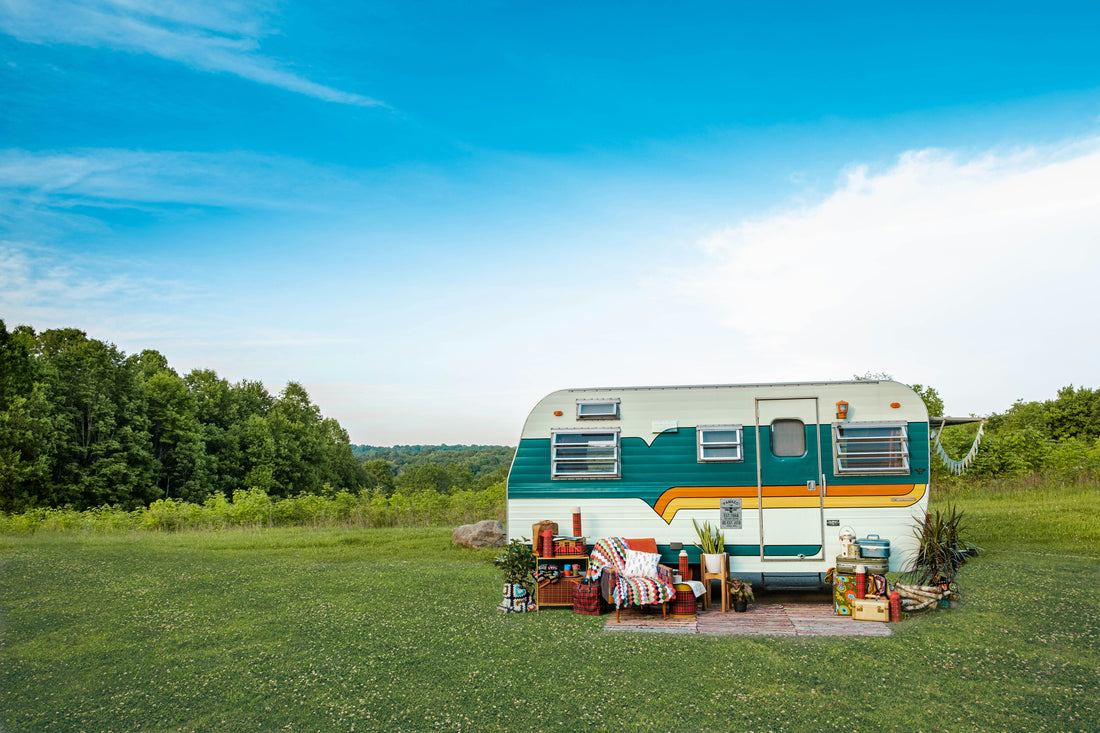
Seasonal Camping Guide: Gear You Need for Spring, Summer, Fall, and Winter
Share
Dreaming of the perfect camping trip all year round? Each season has its unique challenges and rewards. This seasonal camping guide covers the essential gear for spring, summer, fall, and winter, so you’ll always be prepared, comfortable, and ready for adventure—whatever the weather.
Choosing the Right Tent for Every Season
Your tent is your haven against the elements, so match it to the conditions.
- Spring and Fall: Look for a three-season tent that protects against rain and chilly breezes but still offers ventilation.
- Summer: A lightweight, mesh-heavy tent provides crucial ventilation to keep you cool and bite-free.
- Winter: Choose a four-season tent, built to withstand wind and snow and insulate against cold nights.
Small upgrades—like a groundsheet for spring mud or extra pegs for windy conditions—help, too. Make sure your tent is compatible with the season’s challenges for a restful sleep.
Sleeping Comfort: Staying Warm or Cool

Sleep quality makes or breaks your camping experience, so select sleeping gear with care.
- Spring/Fall: Go for a sleeping bag rated to about 20-30°F. Layers matter; bring a liner for chilly nights.
- Summer: A lightweight sleeping bag or even a sheet works. A sleeping pad protects against uneven, rocky ground and adds precious comfort.
- Winter: You'll need a sleeping bag rated well below freezing and an insulated pad to block ground chill.
Self-inflating pads and compact, moisture-resistant pillows can improve your rest in any season.
Seasonal Clothing: Layering Is Key
Weather can shift quickly outside, so packing versatile clothing means you can adapt.
Spring and Fall Essentials
- Lightweight base layers wick moisture.
- Fleece or softshell jackets add warmth.
- Waterproof shells keep you dry during showers.
Summer Must-Haves
- Breathable, UV-protective shirts and shorts.
- Wide-brim hats for sun protection.
- Quick-dry socks and sandals for stream crossings.
Winter Gear
- Wool or synthetic thermal underwear.
- Down or synthetic insulated jacket.
- Waterproof outerwear, insulated gloves, and warm hats.
Avoid cotton in all seasons—it absorbs moisture, chilling you in the cold and taking ages to dry after rain.
Cooking and Hydration: Tools for Every Temperature
Safe, delicious meals make camping more enjoyable, whatever the climate.
- Spring and Fall: Standard camping stoves and lightweight cookware are reliable.
- Summer: Food safety is key, as spoilage happens rapidly. Use cooler bags and ice packs, and hydrate often.
- Winter: Fuel canisters can struggle in the cold. Liquid fuel stoves perform better. Bring insulated water bottles to prevent freezing.
Regardless of season, a water filter or treatment tabs ensure a steady source of clean hydration.
Footwear for Changing Terrain
Feet take the brunt of outdoor exploration. Equipped feet stay dry, warm, and blister-free.
- Spring: Waterproof hiking boots help with muddy, wet trails.
- Summer: Breathable trail shoes or hiking sandals are ideal for warmth and water crossings.
- Fall: Supportive boots withstand rocks, roots, and fallen leaves.
- Winter: Insulated, waterproof boots and gaiters guard against snow and slush. Traction cleats reduce slips.
Breaking in new shoes before your trip prevents painful surprises on the trail.
Lighting and Essentials for Each Season
Relying on daylight isn’t enough, especially as the seasons change.

- Headlamps: Versatile, hands-free illumination for long nights or early mornings.
- Lanterns: Create a cozy campsite; choose battery-powered options in winter.
- Batteries: Bring extras, as cold saps power quickly.
- Bug Repellent: Crucial in spring and summer, less so in winter but good to have on hand.
- First Aid Kit: Customize with season-specific essentials—extra sunscreen in summer, hand warmers in winter.
Keeping a few multi-purpose items—like duct tape, multitools, and paracord—can solve unexpected campsite issues, whatever the weather.
Seasonal Camping Tips for Success
- Check weather reports and trail conditions before every trip.
- Adjust your pack weight: shed excess layers in summer and prioritize warmth in winter.
- Learn to layer clothing—comfort is all about flexibility.
- Always have a backup fire-starting method, especially in damp or freezing conditions.
- Store food securely, as wildlife can be more active in certain seasons.
